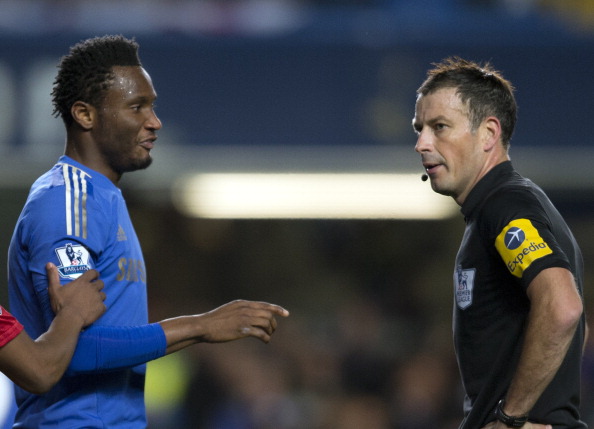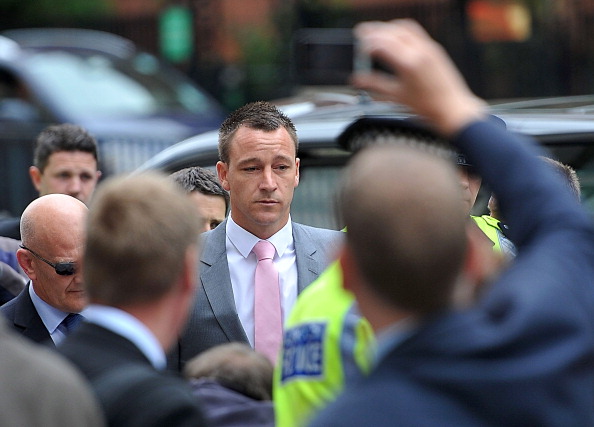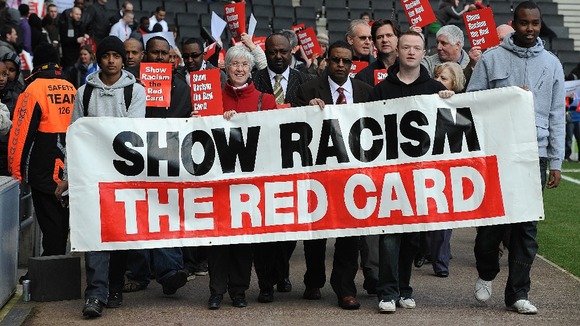The debate on racism in football has now descended into absurd levels. On one hand, we are having accusations that the Football Association (FA) is institutionally racist. On the other hand, there are those who argue, and this includes some very powerful figures in the game, that Chelsea should never have made a complaint against Mark Clattenburg.
Both positions are absurd. Let us first deal with the Chelsea situation. As is very clear from what Bruce Buck, the Chelsea chairman, has told me after the Manchester United game, the club faced a very straightforward situation. This was that two of their players, John Obi Mikel and Ramires, were alleging that Clattenburg had called Mikel a monkey. Indeed, Mikel had tried to get into the referee’s room to confront him after the game and was prevented from doing so by Roberto Di Matteo, the Chelsea manager and his assistant, Eddie Newton.
As Buck tells the story, he went to the dressing room after the match, talked to the players, asking them not once, but three times, did they hear the word monkey? Could they be mistaken? Could they have heard Mikel instead of monkey? The players insisted they heard the word monkey.
True, English is not the first language of these players and it is possible they might have misheard or misunderstood Clattenburg. But Buck spoke in English to the players and was also told by the club’s back room staff that the players spoke good English.
Clattenburg has not spoken since then, but it is clear he denies using the offensive words. Now, it is possible that Clattenburg might have said to Mikel (pictured below, left), “I don’t give a monkey’s”, or some other use of the word, which would not be remotely offensive. Buck would not comment on whether Clattenburg (pictured below, right) used such a phrase, and as an American, he is clearly not familiar with this English colloquialism. Or as he put it to me, “Is that a good British phrase of some sort?”

But all this still leaves the question: what does the club do when two of their players are making such an allegation against the referee? And this where we come up against the club’s responsibilities as an employer. Two employees allege racist comment. Consider that the 2010 Equality Act requires all employers to take certain actions if an employee is subject to discrimination by third parties. For most employees this would be customers. In this case, Clattenburg would be a third party. Hard as it is to see a referee as a customer of a player, in legal terms this is what it would amount to.
There is also FA rule E14, which says a participant shall immediately report to the Association any incident or matter which may be considered a misconduct. Note that misconduct is a defined term under the FA regulations and includes such alleged racial behaviour.
I know this is a game of football. But this is also a trade where two of the players are employees of a limited company and have the expectation that their employers will protect their rights. I cannot see how in such circumstances the club could have simply said to the players, “Sorry you cannot make this charge. Remember this is the referee you are talking about. Imagine what the world will say. Forget about it and go home.” As Buck says, had Chelsea done that, “If that had leaked out, we would’ve really been crucified”.
Where the club can be faulted is in the way it worded its initial press comment on that Sunday night. Buck’s defence is the story was leaking out. Nevertheless, the club’s press comment could and should have been more judiciously worded given the explosive nature of the allegations.
But what about the police complaint? The police have since decided there is no case to investigate. But then they should never have been asked to investigate this in the first place. Remember this is an allegation about what may or may not have taken place on the field of play. This must be the responsibility of the FA as the regulatory body for the game in this country.

Incidentally, I also do not think the John Terry (pictured above, centre) affair should have become a police matter. It should have been handled solely by the FA. And what is more, the FA should have not put aside their inquiry and allowed the police investigation to take precedence. It resulted in a situation where the Terry case was not heard for almost a year. That was a fundamental error on the part of the FA. The FA was not required to let the police come first. It was within its powers to have told the police, “Investigate if you like, but we shall carry on and come to our judgement”.
Had the FA taken that decision, it would have avoided a lot of grief. In the last year, talking to many black players and coaches in the game, it is clear they just could not understand why the FA gave way to the police on this issue. Indeed, one reason why the absurd charge of the FA being institutionally racist is being made is due to its wretched handling of the Terry affair.
The FA, in my judgement, is not institutionally racist. However it is cumbersome, still lagging behind in a 19th century world and has not realised that if it is to be taken seriously as a regulatory body it should act more decisively and be more open and transparent.
So its disciplining body should be completely separate from the rest of the FA. Also the scale of punishments for offences such as racist behaviour should be clearly spelled out and considerably greater than for other football related offences.
Also, the FA commission hearings should be like a court – open to the media and the members of the public. Much of the backlash the FA faced in the wake of the Terry case could have been avoided had Terry’s FA hearing, like his magistrate court hearing, been open to the world and not held in secret.

And the FA should use its powers with FIFA and the other home nations who make up the International Football Association Board (IFAB) to ensure that what referees and the officials say to each other during a match is recorded. If necessary, these recording could be made public. Imagine if we now had a recording of all that was said by Clattenburg and the other officials during the Chelsea-Manchester United match. In an age of public scrutiny, and where other sports record officials, not to record such conversations only prompts unnecessary suspicion.
But to say that the FA is not institutionally racist does not mean there are no glass ceilings in football. The fact that there are so few black coaches and managers, and an almost complete absence of black faces in the boardroom, is proof of that. Football has come a long way in the fight against racism. You only have to talk to black players who played in the 80s to realise that. I know from my own personal experience of a match reporter then how bad it was if you had a non-white face. On two occasions, I was lucky to escape a beating by racist fans thanks to the intervention of the police in the nick of time.
But for all the progress that has been made, there is still a lot more that needs to be done. Accusations of institutional racism may win cheap headlines, but, far from helping the struggle against racism, it will complicate and hinder it.
Mihir Bose is one of the world’s most astute observers on politics in sport, particularly football. He wrote formerly for The Sunday Times and the Daily Telegraph and was the BBC’s head sports editor. Most recently, he published The Game Changer: How the English Premier League came to dominate the world. Marshall Cavendish £14.99
Follow Mihir on Twitter.
www.mihirbose.com

